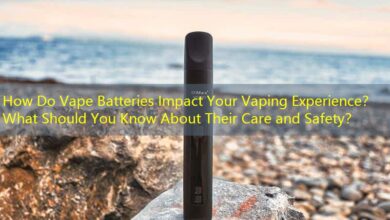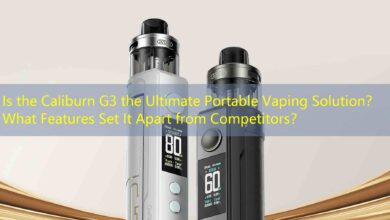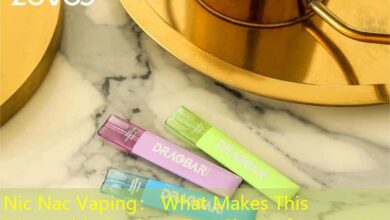Delta 8 vs. Delta 9: Key Differences Explained
Delta 8 vs. Delta 9: Key Differences Explained
The world of cannabis consumption has evolved significantly over the past few years, introducing a myriad of compounds that cater to various preferences and needs. Among these compounds, Delta 8 THC and Delta 9 THC have garnered considerable attention. This article aims to provide a comprehensive comparison between Delta 8 and Delta 9, focusing on product specifications, flavor profiles, longevity, battery life, and user experience, ultimately helping consumers make informed choices.
Product Overview and Specifications

Delta 8 THC and Delta 9 THC are both cannabinoids derived from the cannabis plant. Delta 9 THC is the most well-known psychoactive compound in cannabis, responsible for the classic “high” experience. In contrast, Delta 8 THC is a less potent analog of Delta 9, with different chemical characteristics and effects.
Typically available in various forms, such as vape cartridges, edibles, tinctures, and flowers, both Delta 8 and Delta 9 products can vary widely in terms of potency, purity, and formulation. For instance, Delta 8 products are often marketed at around 50-75% of the potency of Delta 9, making them appealing to users seeking a milder experience.
Appearance and Sensation
When it comes to the visual and tactile aspects of Delta 8 and Delta 9 products, they share similarities, but with subtle distinctions. Most vape cartridges, for example, look sleek, with indications on their labels regarding the THC content. The texture of Delta 8 and Delta 9 concentrates may also vary; Delta 8 often presents with a slightly lighter color, indicating potential differences in purity or extraction methods.
The initial sensations differ as well. Users of Delta 8 frequently report a smoother, more mellow high that tends to provide clear-headedness, while Delta 9 is often characterized by a more intense and euphoric experience, which may be less forgiving for individuals with lower tolerances.
Best Flavors and Duration
Flavor profiles for both Delta 8 and Delta 9 products can be remarkably diverse. From fruity to herbal, manufacturers often infuse their products with additional terpenes to enhance the taste. Delta 8 vapes and edibles particularly stand out for their unique flavorings, appealing to a broader audience, especially those who may be new to cannabis.
In terms of duration, both Delta 8 and Delta 9 have varied effects. Delta 9 THC typically reaches its peak effects within 30 minutes to 2 hours and can last between 2 to 6 hours, depending on the product and individual metabolism. Delta 8 THC, however, may exhibit a longer duration with effects persisting up to 8 hours for some users, thereby lending it an edge for those seeking prolonged relief or enjoyment.
Battery Life and Charging
For vape products, battery life is a crucial feature. Delta 8 vape cartridges are usually compatible with standard 510-thread batteries. Most reputable cartridges stand out with a battery life ranging from 200 to 500 puffs, depending largely on the capacity of the individual battery and the usage habits of the consumer. Buyers should consider batteries that offer quick charge times and longevity to maximize their experience.
Performance and Usage Methods
The performance of Delta 8 and Delta 9 products can vary significantly based on their method of consumption. Vaping provides rapid effects, generally within minutes, while edibles take longer to kick in but often result in a more intense and longer-lasting experience. Tinctures offer a flexible option that allows users to control their dosage with accuracy.
For those unfamiliar with cannabis, starting with low doses—particularly with Delta 8—is advisable, as it is generally considered milder than Delta 9. Experienced users may favor Delta 9 for its stronger effects and potent euphoria.
Pros and Cons
When weighing the advantages and disadvantages of both Delta 8 and Delta 9, several factors come into play.
Delta 8 Pros:
– Milder effects offer a smoother experience.
– Potential therapeutic benefits with fewer psychoactive repercussions.
– Diverse product options with unique flavors.
Delta 8 Cons:
– Still relatively new, leading to variability in product quality and regulation.
– Limited research compared to Delta 9.
Delta 9 Pros:
– Well-established effects and familiarity among users.
– Versatile forms available, including high-potency options.
Delta 9 Cons:
– Stronger side effects may not be suitable for novice users.
– Legality varies significantly across different jurisdictions.
Target User Demographics

The target demographics for Delta 8 and Delta 9 products can differ substantially. Delta 8 appeals more to casual users and those seeking therapeutic benefits without the intense high associated with Delta 9. It has gained traction among individuals addressing anxiety, pain management, and stress relief in a more subdued manner.
Conversely, Delta 9 tends to attract seasoned cannabis users who appreciate the full spectrum of psychoactive effects and are looking for those intense experiences that Delta 9 provides.
In conclusion, both Delta 8 and Delta 9 THC offer unique experiences, advantages, and disadvantages. Whether one opts for the milder Delta 8 or the more potent Delta 9 largely depends on personal preferences and desired outcomes. Familiarity and experimentation within safe confines will ultimately guide users towards their ideal choice.




